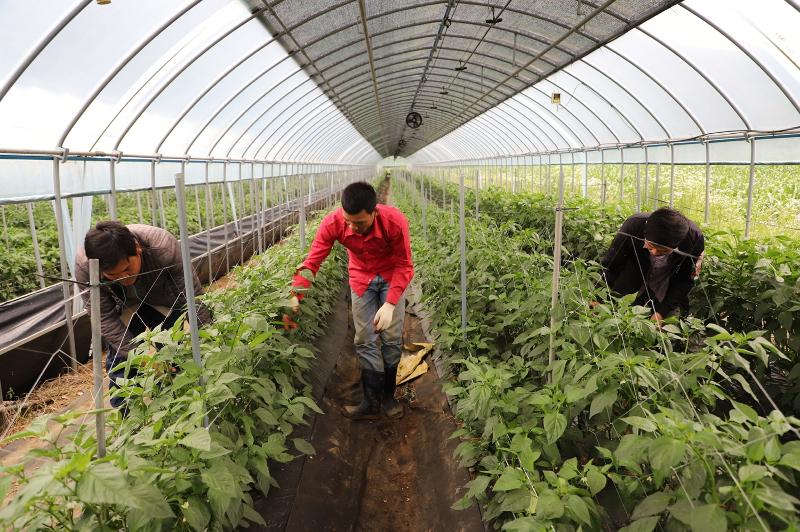
The government next year will allow up to 165,000 foreign workers on the E-9 (non-professional) visa under the Employment Permit System. Shown are such staff at a farm in Goesan-gun County, Chungcheongbuk-do Province. (Goesan-gun County Office)
By Margareth Theresia
The number of foreign workers on the E-9 (non-professional) visa next year will be raised to a record-high 165,000 from 120,000 of this year, with restaurants, mining and forestry added as sectors eligible to employ such staff.
In the 40th meeting of its Foreign Workforce Policy Committee, the Ministry of Employment and Labor on Nov. 27 at Government Complex-Seoul approved a plan to recruit and manage foreign workers next year under the Employment Permit System (EPS) and newly eligible sectors for such laborers.
Introduced in 2004, the EPS allows small and medium companies struggling to find domestic staff to legally employ non-professional workers from abroad through employment permits from the government. Under the system, workers from 16 countries including the Philippines, Sri Lanka and Uzbekistan can enter Korea with an E-9 visa and work for a designated period.
After on-site surveys are conducted, the new plan will allow holders of the visa to work in three newly designated sectors suffering from labor shortages: restaurants, forestry and mining. In the restaurant sector, such workers can be kitchen assistants on a trial basis at Korean restaurants in 100 select regions including Seoul, Busan and Daegu.
The government will also boost management and support to help such workers smoothly settle in the country and workplaces ease problems in human resource management.
The number of foreign workers on the E-9 nearly doubled this year to 120,000 from 69,000 last year. The figure next year will surge 37.5%.
The ministry said, "Amid lingering structural factors such as the decrease in the productive population caused by the low birth rate and rapidly aging population, demand for foreign workers continues especially in select service sectors with a high proportion of job openings."
margareth@korea.kr